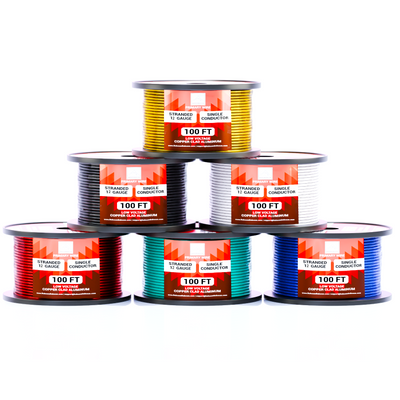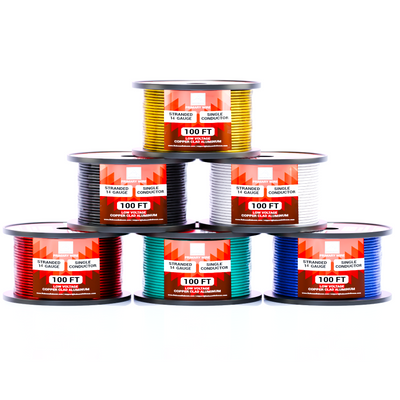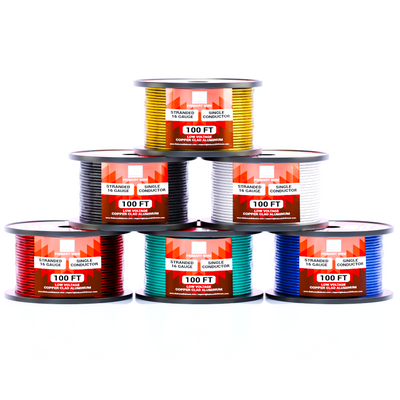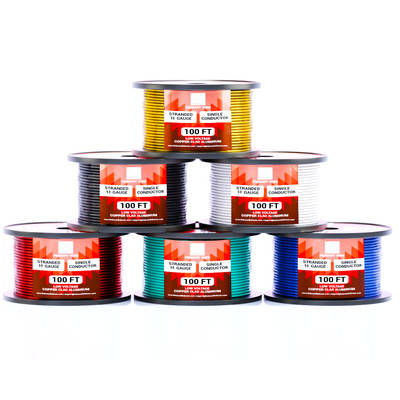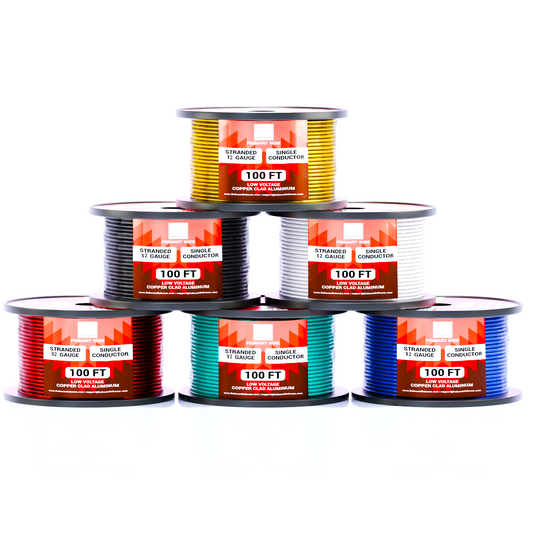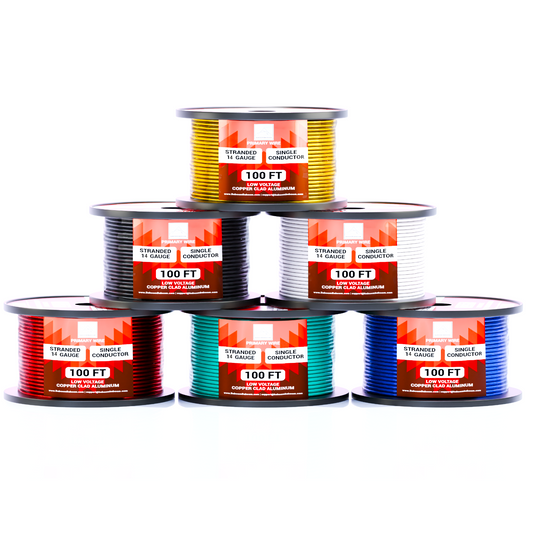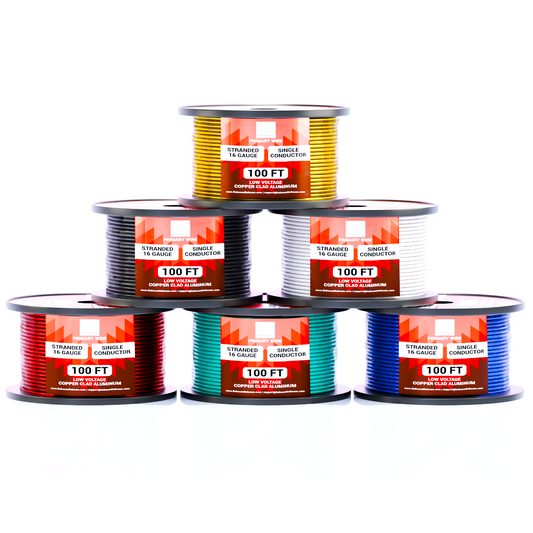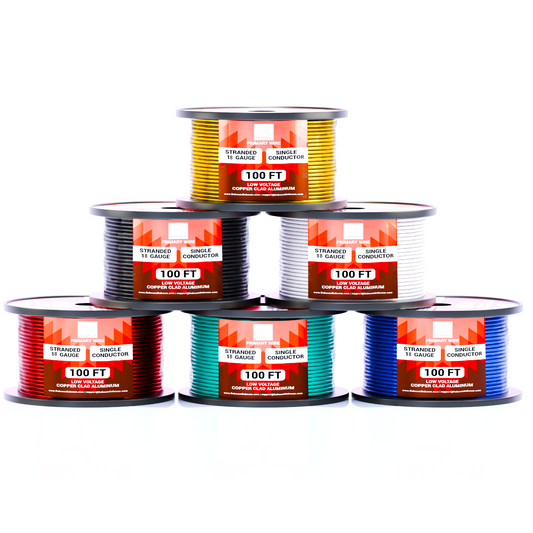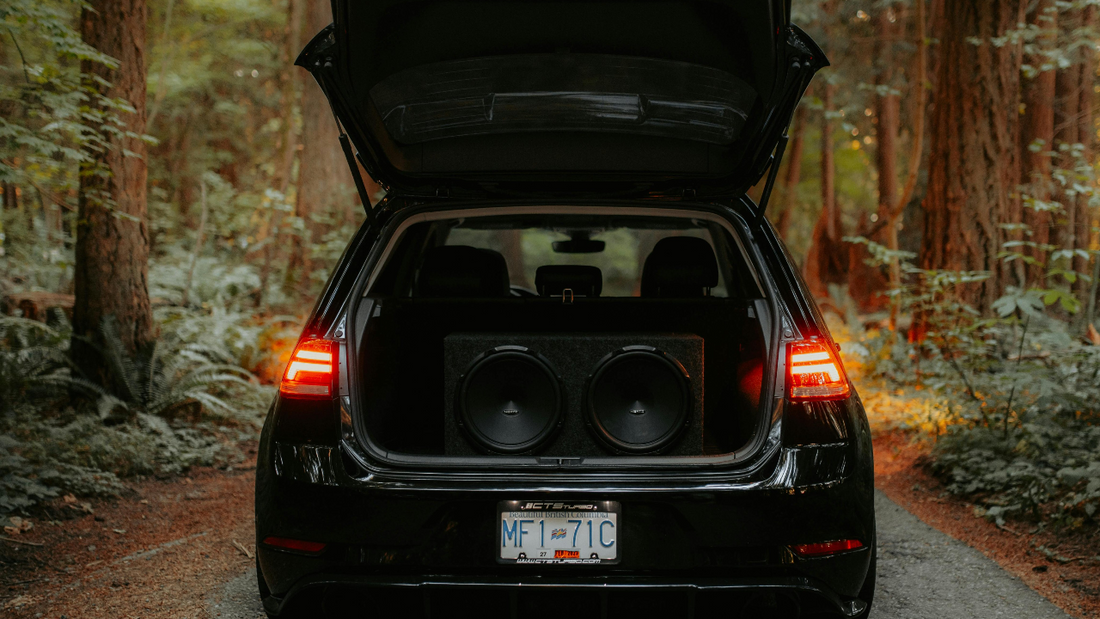
How to Prevent Noise Interference in Car Audio Wiring
Share
Introduction
Noise interference in car audio systems can be frustrating, leading to unwanted hums, buzzing, or static that ruins the listening experience. Proper wiring techniques are crucial in minimizing and preventing noise interference. This blog will explore how to prevent noise interference in car audio wiring, focusing on best practices and the importance of using quality materials like CCA wire gauges.
What is Noise Interference?
Noise interference in car audio systems can come from various sources, including the vehicle's electrical system, external radio frequencies, and even poor grounding. When these noises find their way into the audio signal, they can manifest as unwanted sounds through the speakers. Understanding the common sources of interference is the first step in preventing it.

Common Sources of Interference
1. Electrical System Noise: Alternators, ignition systems, and other electrical components can introduce noise into the audio system, especially if the wiring isn't properly shielded or routed.
2. Radio Frequency Interference (RFI): RFI occurs when external radio frequencies are picked up by the audio system, often due to poorly shielded cables or components.
3. Ground Loops: Ground loops are a common source of hum and buzz in car audio systems. They occur when there are multiple grounding points at different potentials, leading to unwanted noise.

Best Practices for Preventing Noise Interference
To prevent noise interference in your car audio wiring, it’s essential to follow best practices during installation. These include proper routing of cables, effective grounding, and the use of quality materials.
1. Proper Cable Routing
One of the most effective ways to prevent noise interference is by properly routing the cables in your car. Here are some key tips:
Separate Power and Signal Cables: Run power cables and audio signal cables on opposite sides of the vehicle to minimize the chance of interference. This separation reduces the likelihood of electromagnetic interference (EMI) affecting the audio signal.Avoid Running Cables Near Noisy Components: Keep audio cables away from components like the alternator, ignition system, and other sources of electrical noise.
2. Effective Grounding
Proper grounding is essential to prevent noise interference, especially ground loops.
Single Point Grounding: Ensure that all audio components are grounded to a single point, ideally near the battery or a clean chassis ground. This minimizes the potential for ground loops.
Check Ground Connections: Inspect all ground connections to ensure they are tight, clean, and free of corrosion. Poor grounding can introduce noise into the system.

3. Use Shielded Cables
Using shielded cables for your audio connections can significantly reduce the chances of noise interference.
Shielded RCA Cables: Invest in high-quality shielded RCA cables for connecting components like amplifiers and head units. The shielding helps block out external noise and RFI.4. Quality Materials and Wire Gauges
The materials and wire gauges used in your car audio installation play a significant role in preventing noise interference. CCA (Copper-Clad Aluminum) wire gauges are a popular choice for car audio systems, offering a balance between conductivity and cost.
Choose the Right Gauge: Selecting the appropriate wire gauge for your installation ensures efficient power delivery and reduces the risk of interference. For example, 18-gauge wire is suitable for lower-power connections or shorter runs, 16-gauge wire is typically sufficient for most speaker connections, while thicker gauges like 14-gauge and 12-gauge may be needed for longer runs or higher-powered systems.
Check for Quality: Ensure the wires are of good quality, with intact insulation and proper shielding. Damaged or low-quality wires can easily pick up noise from the vehicle's electrical system.

Conclusion
Preventing noise interference in car audio wiring requires careful planning, proper techniques, and the use of quality materials. By following best practices such as proper cable routing, effective grounding, and using shielded cables, you can minimize the risk of unwanted noise in your audio system. Additionally, choosing the right wire gauge, like CCA wire gauges, ensures that your system operates efficiently and with minimal interference. With these steps, you can enjoy a clean, clear sound in your car audio setup, free from annoying noise interference.

